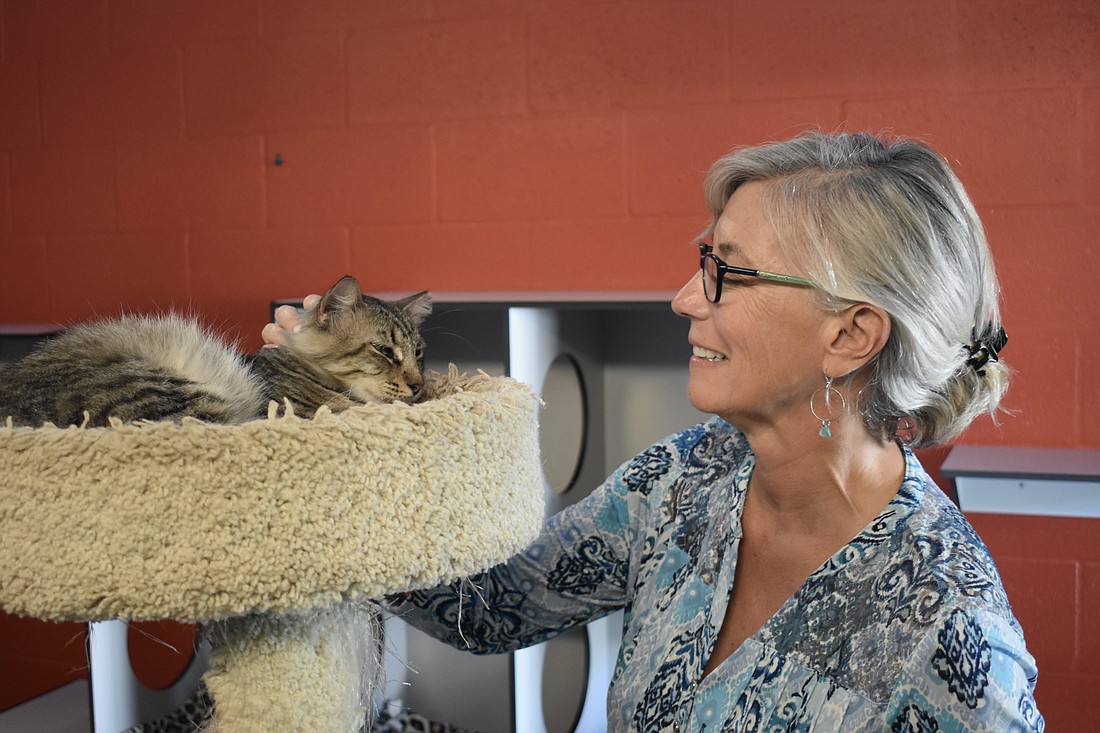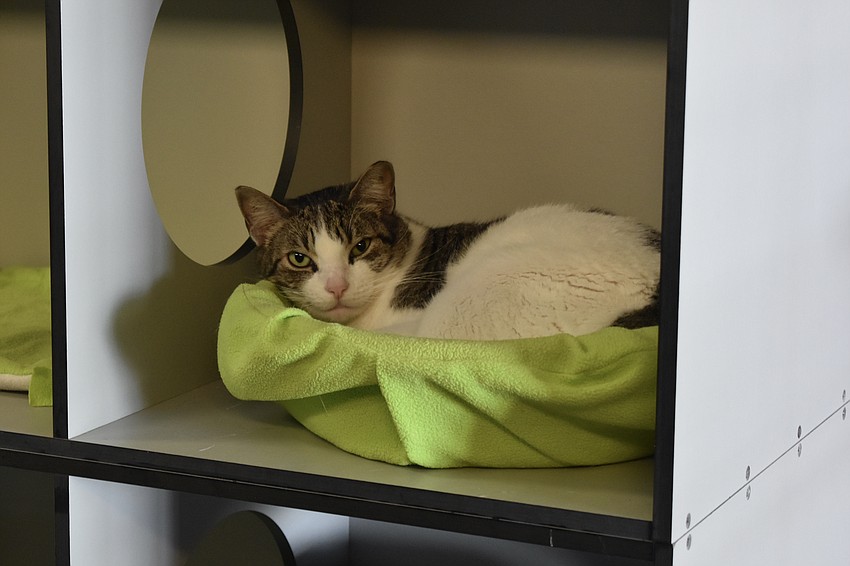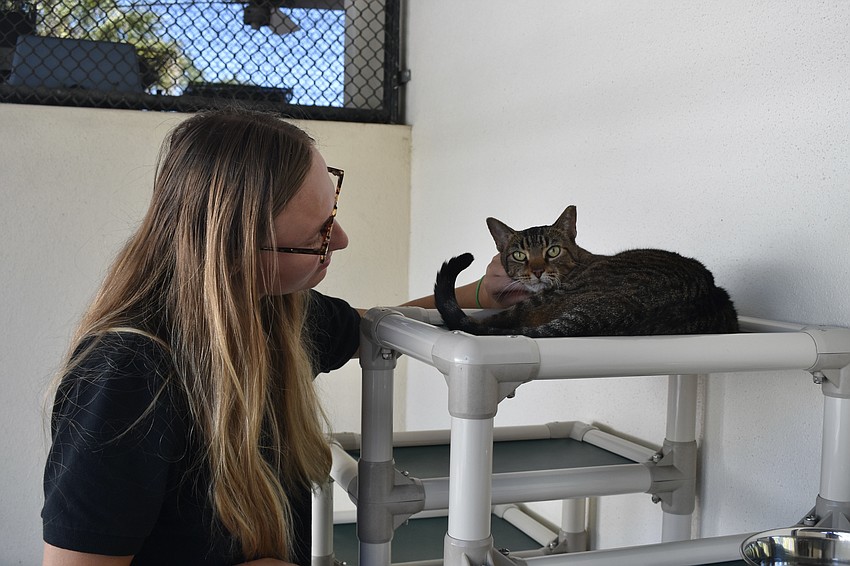- May 8, 2025
-
-
Loading

Loading

Susan Kurowski, executive director of Pets for the Elderly, said she has seen an outpouring of thanks from seniors for the reduced-cost pet adoptions the program sponsors.
“I have gotten thank-you card from a woman who said 'thank you for helping me adopt Sadie. I'm a 72-year-old woman and she has taught me to laugh and play again.' It takes me to my knees. This is exactly what we're hoping for.”
On June 1, Cat Depot, a rescue, adoption and education center, launched its Seniors to Seniors program, drawing on funding from Pets for the Elderly to offer senior cats to individuals ages 60 and up at an adoption fee of $25, reduced from the original $75.
Cat Depot isn't the first organization to take advantage of Pets for the Elderly's program, which expanded nationally in 2002 to work with 56 shelters in 32 states and achieve 100,000 adoptions. But Cat Depot is the first organization to do so that is focused entirely on cats.
Kurowski said one of the many factors that caused Pets for the Elderly to choose Cat Depot was its success ratio; the center has found homes for around 18,000 homeless and abandoned cats and kittens in the past 20 years.
“They wrote such a compelling application, and from what I can see, they appear to be very well-run, so we decided to include them in the program,” she said.
“I was honored,” said Susan Hanus, executive director at Cat Depot. “We see a need for senior cats finding good homes. This gives us a vehicle for raising awareness for senior cats.”
Thus far, three adoptions have taken place through the program, which was promoted on social media. Hanus said the long-term partnership is expected to go beyond 2023.
Hanus said there are some reasons seniors might consider adopting a cat in particular. One reason is that cats do not need to be walked.
“They really do need to stay inside here, just because of the harshness of the climate, the regularity of wildlife — coyotes or raccoons that will fight with a cat,” she said. “They’re pretty easy to take care of.”
However, she said senior cats are particularly appropriate for seniors owners.
Cats are considered seniors at eight years old, and an 8-year-old cat has, on average, 10 years of life, unlike a dog, she said. She noted one advantage of those cats is that they offer a more fixed and easygoing personality.
“A lot of people want kittens because they’re cute, and they’re fun to watch,” she said, noting they also have a tendency to hide under beds, needing to be dragged out.
Pets for the Elderly does not require that the adoptions it funds involve senior cats.

One factor in the application important to both Cat Depot and Pets for the Elderly was the size of Sarasota’s senior population, said Kurowski.
According to Age Friendly Sarasota, Sarasota has one of the nation’s highest proportions of people age 65 and older, at 34% of the population.
The major goal of Pets for the Elderly is combatting loneliness among seniors. This was a factor that Kurowski said encouraged her to select Cat Depot.
Hanus said extensive research and empirical evidence demonstrates the benefits of companion pets, particularly for those who are retired. People are sometimes in the position where they have lost a spouse and are alone, she said, noting that pets help with mental health, stress, depression, cardiovascular disease, blood pressure, and more.
“We all have those moments where you just want to cuddle with the dog or the cat,” she said.
Kurowski said in addition to health benefits, pets encourage seniors to stick to a routine, and feel that someone is counting on them.
“It’s a story that I’ve been telling for 17 years, and it got a whole lot easier to tell when the pandemic hit, because all of a sudden, much younger people were seeing what it feels like to be isolated, to be lonely,” Kurowski said.
Kurowski said the application also noted the ability to reach seniors in areas surrounding Sarasota County.
However, when it comes to seniors, there can be obstacles to adopting a pet, said Kurowski.
She said today, these are mainly financial. Some shelters have very high adoption fees, while prospective pet owners worry they may not be able to afford veterinary care or other services needed to retain a pet.
Those who adopt from Cat Depot are recommended its low-cost clinic, which has grants and funding available..
However, it isn’t just the senior humans who are disproportionately in need of companionship.
Peyton Davis, communications specialist at Cat Depot, said while many surrenders into shelters involve senior-aged cats, the shelter can only handle so many at a time. Medical care, as well as dental care, are often required, she said.
At any given time, around 5% of the shelter’s cats are seniors, Davis said.

Kurowski also said the choice of Cat Depot was driven by the organization’s clear willingness to outline how they intend to use the program and their willingness to make sure they were a safe place for seniors trying to adopt.
She said over time, shelters have grown safer for seniors, who can count more strongly on being treated fairly.
“There was a time that people would be strictly rejected because of their age, without any consideration given to the fact that they may have a more stable home than a 30-year-old,” she said. “I think that as a nation, we’ve gotten wiser.”
She said if it’s necessary to reject someone, the organization asks that shelters exercise compassion.
Kurowski noted the organization made changes to the program in 2020; for 25 years before then, the program had strictly involved reduced-cost adoptions through older adults. It had facilitated 105,000 adoptions during that time since going national in 2002.
However, the program was altered so shelters can offer one of three services. Shelters can now either take advantage of reduced cost adoptions, apply to offer veterinary and dental assistance, or perform retention services, which involves assisting with food shortages, toenail clipping, or other needs.
As the partnership continues into the future, it appears there are many more adoptions to come.
"Unlike some grants that are one and done, Pets for the Elderly looks at this as a as a long-term relationship, which is really nice," Hanus said.